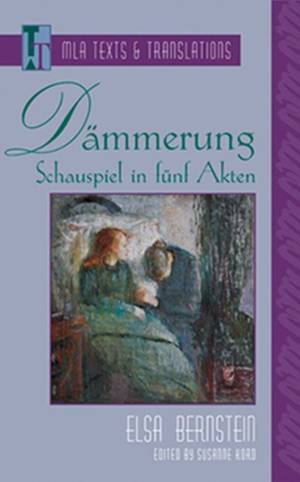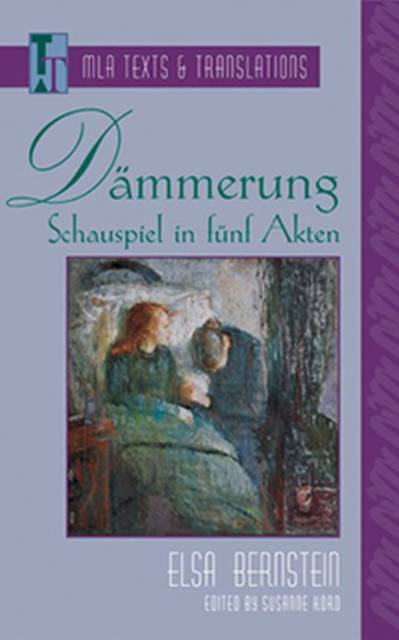
- Retrait gratuit dans votre magasin Club
- 7.000.000 titres dans notre catalogue
- Payer en toute sécurité
- Toujours un magasin près de chez vous
- Retrait gratuit dans votre magasin Club
- 7.000.0000 titres dans notre catalogue
- Payer en toute sécurité
- Toujours un magasin près de chez vous
Description
Elsa Bernstein lived at the center of Munich's cultural life from the 1890s into the next century. Her literary salon was frequented by such authors as Rainer Maria Rilke, Theodor Fontane, Henrik Ibsen, and Thomas Mann. Her plays, written under the pseudonym Ernst Rosmer, are noteworthy for their unconventional female figures, uninhibited language, taboo subjects, and realistic detail. Susanne Kord, the editor and translator of Dämmerung, discusses the reception of Bernstein's works--at first enthusiastic, then increasingly sexist--and the theme, in Dämmerung, of the culturally sanctioned oppression of women.
In this naturalist drama, a woman eye surgeon treats the daughter of a man who is prejudiced against educated women. Her successful treatment wins the father's affection for her, and they fall in love. She is ready to give up medicine for wedded bliss--her wish is to become "very happily stupid--but finds misery instead.
Spécifications
Parties prenantes
- Auteur(s) :
- Editeur:
Contenu
- Nombre de pages :
- 192
- Collection :
Caractéristiques
- EAN:
- 9780873529273
- Date de parution :
- 01-10-03
- Format:
- Livre broché
- Format numérique:
- Trade paperback (VS)
- Dimensions :
- 142 mm x 213 mm
- Poids :
- 235 g

Les avis
Nous publions uniquement les avis qui respectent les conditions requises. Consultez nos conditions pour les avis.






